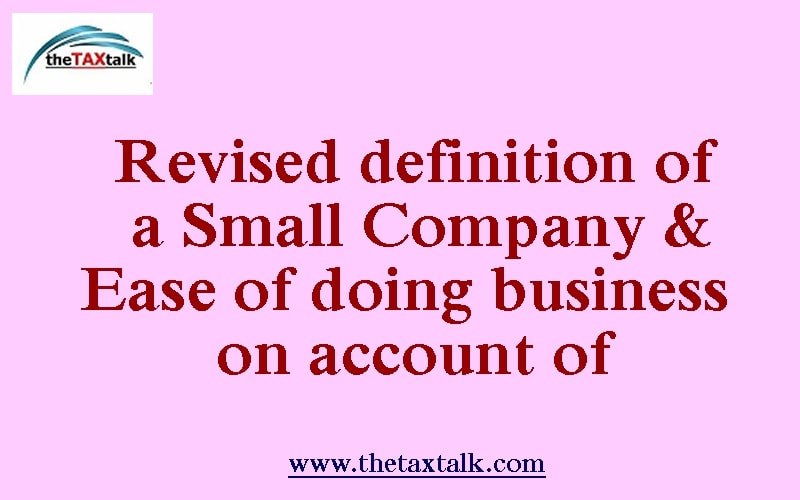![]()
Revised definition of a Small Company & Ease of doing business on account of
- The MCA vide its Notification No. G.S.R. 700(E) Dated 15th September, 2022 has yet again revised the definition of Small Company [Section 2(85) of The Companies Act, 2013].
- Accordingly, the definition of Small Company under section 2(85) shall be read as under: Small Company means a company, other than a public company, paid-up share capital of which does not exceed four crore rupees or such higher amount as may be prescribed which shall not be more than ten crore rupees and turnover of which as per profit and loss account for the immediately preceding financial year does not exceed forty crore rupees or such higher amount as may be prescribed which shall not be more than one hundred crore rupees.
- Let us look in detail, with the relevant provisions under play, the exemptions that the small companies have been provided under the Companies Act, 2013-
No need to prepare Cash Flow Statement as a part of Financial Statements.
If a company is covered under the definition of Small Company, it will remain exempted from the applicability of the CARO 2020.
Rotation of auditors is not applicable in case of Small Companies.
An Auditor of a Small Company is not required to report on the adequacy of the internal financial controls and its operating effectiveness in the Auditor’s Report.
A Small Company is required to hold only two board meetings in a year.
A Small Company can file an abridged annual return self certified by directors.
If penalty is payable for non-compliance of any of the provisions of this Act by a One Person Company, Small Company, start-up company or Producer Company, or by any of its officer in default, or any other person in respect of such company, then such company, its officer in default or any other person, shall be liable to a- penalty which shall not be more than one-half of the penalty specified in such provisions – subject to a maximum of two lakh rupees in case of a company and one lakh rupees in case of an officer who is in default or any other person.

